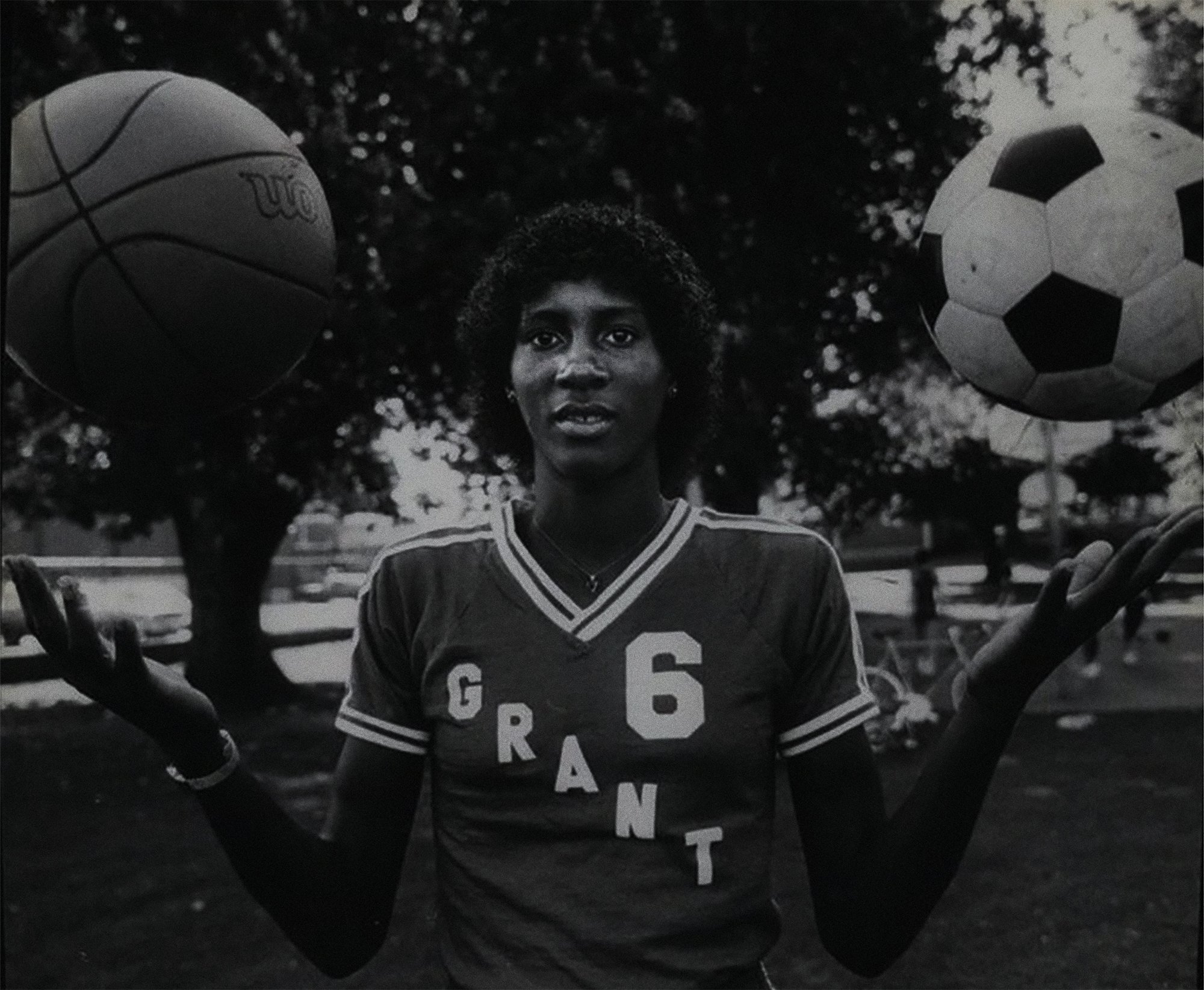
There are many reasons why elite sports stars can end up poor and homeless. Drug habits, concussions, bad investments, you name it. But Cindy Brown is different.
Identity crisis.
In 1988 All-American women’s basketball player Cindy Brown stepped up onto the podium, arms aloft and grinning hugely, to claim her gold medal at the Olympic Games in Seoul .
The team had triumphed in a punishing final against Yugoslavia, with Cindy Brown chalking up 12 points to seal the deal. Cindy Brown went on to the WNBA and earned over $2.5 million dollars during a stellar career.
Today Cindy Brown lives in her car.
There are many reasons why elite sports stars can end up poor and homeless. Drug habits, concussions, bad investments, you name it. But Cindy Brown is different.
In 2005, she was the victim of identity theft.
Brown has been legally evicted from her Villa Park home after someone forged her signature to commit fraud. In 2005 a man acquired a fake loan document on Brown’s home for $380K. He then went to a bank with a lost loan affidavit that included Brown’s signature claiming he had lost the loan.
The bank paid him the funds then sold the loan to The Bank of New York Mellon which claimed they purchased Brown’s home fairly and were not responsible for any wrongdoing. The case has been ongoing for over a decade.
Let’s have a look at that sentence again.
The Bank of New York Mellon claimed they purchased Brown’s home fairly and were not responsible for any wrongdoing.
The technology is here to make sure the crimes that made Cindy Brown homeless can never happen again.
For too long banks have been able to pretend that they’re innocent bystanders to such crimes.
That, to put it mildly, is bullshit.
We hope that the tide is turning. Last year over in the UK the retail bank NatWest pleaded guilty to failing to prevent money laundering of a massive £400m – all done by one single customer.
NatWest said "we deeply regret" failing to "adequately monitor and therefore prevent money laundering by one of our customers between 2012 and 2016".
The state-backed bank, formerly Royal Bank of Scotland, is the first British lender to admit such an offence.
Lawyers told a court hearing that NatWest faces a fine of around £340 million (the sentence will be passed down on December 9th).
The case was brought by the Financial Conduct Authority (FCA) – and was the first against a bank under a 2007 money laundering law. The FCA said NatWest failed to adhere to the requirements of anti-money laundering legislation.
Chief executive Alison Rose said: "NatWest has a vital part to play in detecting and preventing financial crime and we take extremely seriously our responsibility to prevent money laundering by third parties.”
Jonathan Fisher, a senior lawyer at Bright Line Law specialising in money laundering cases, said: "the message sent to financial institutions is clear. If there are failings in your money laundering systems, criminal prosecution may follow."
At APLYiD we have biometric ID verification software that works without any need for downloads or apps and can perfectly confirm a customer’s identity in under ninety seconds. It surpasses all Government compliance requirements and meets the highest possible security standards. It’s simple, smart, and safe.
The technology is here to make sure the crimes that made Cindy Brown homeless and that put NatWest in such hot water can never happen again.
It exists. We have it.
And it costs a tiny amount to use – certainly in comparison to a £340 million fine.
If banks – and any other company that really wants to keep its customers safe and prevent money laundering or identity fraud – choose not to use it, then we will never again accept them telling us that they ‘were not responsible for any wrongdoing.’
Because this isn’t about money. This is about people’s lives.
In the meantime Cindy Brown sleeps in her car, waking each morning to stare forlornly at the home she has been cheated out of. “If I enter that property I’m going to be arrested,” she said. “I’ve lost everything I worked so hard for.”